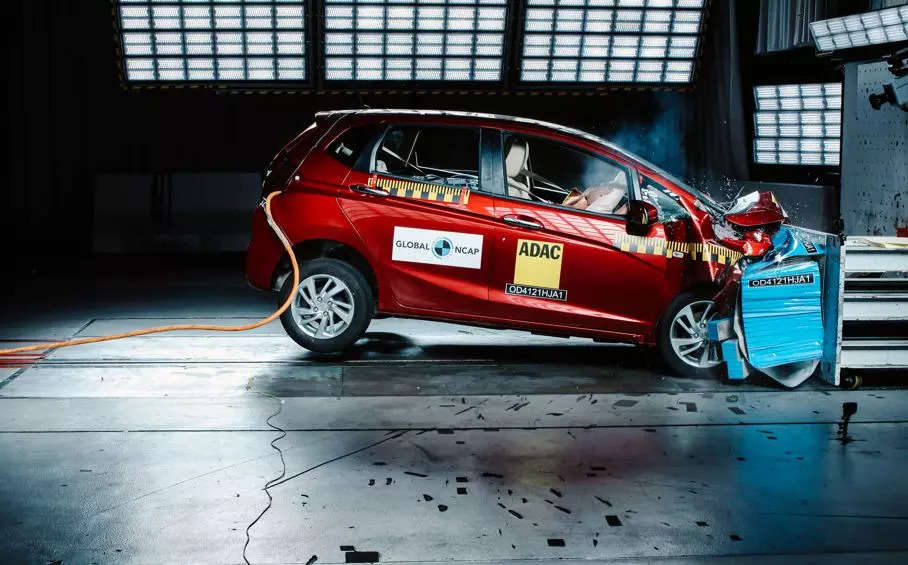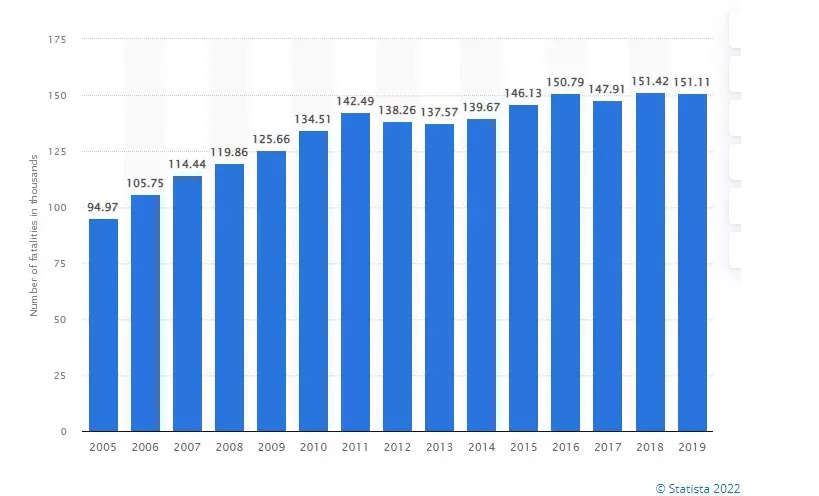
India’s first new car assessment programme may not be too far away. ETAuto learns that a draft notification of the same by the Ministry of Road Transport and Highways (MoRTH) may be announced within months. “If they want, they can do it in one month”, says a source who is familiar with the preparations of the programme. An email query to MoRTH regarding ‘Bharat NCAP’ has remained unanswered till the publishing of this report.
The Central Institute of Road Transport (CIRT), a Union Government undertaking based in Pune, is proposed to lead the ‘Bharat NCAP’ initiative, while MoRTH is expected to be involved. Global New Car Assessment Programme (Global NCAP) may also have a role. The governing structure of ‘Bharat NCAP’ is yet to be finalised, according to sources.
The programme is expected to follow the revised test protocols that Global New Car Assessment Programme (Global NCAP) has already announced. Global NCAP will test cars from India and Africa according to the new set of protocols from July. Side impact test is a key addition to the test exercise under the new protocols.
A key difference between the Indian Government mandated crash test and the ‘Bharat NCAP’ initiative will be the difference in the speeds of cars being crash tested. Fifty-six kmph is the speed for type approval certification, whereas it is 64kmph for a test at all NCAPs. ‘Bharat NCAP’ is expected to follow that.
The global safety watchdog has crash tested 50 cars from India so far under its ‘Safer Cars for India campaign, which started in 2014. Since its test protocols are being accepted by many OEMs here, ‘Bharat NCAP’ will tap into Global NCAP’s test protocols, with “some India specific parameters”, according to sources aware of the developments.
When contacted, Alejandro Furas, Secretary General, Global NCAP, told ETAuto that he isn’t aware of the new plans for a ‘Bharat NCAP’, but added that “Our protocols are public. Anyone can take them. In fact, we made them public so that manufacturers can take them and develop their cars accordingly”. It is learnt that the sharing of protocols could only be for the first phase of ‘Bharat NCAP’.
Electronic Stability Control (ESC), expected to be made mandatory in cars from next year, six airbags, a notification for which has been already shared, and three-point seat belts are some of the features that will help cars earn a high score under ‘Bharat NCAP’ also.
OEMs have already started offering such features, and some more like ADAS (Advanced Driver Assistance Systems) in their new models. Mahindra & Mahindra (M&M) is one among them. “We are confident of our new models scoring well in the programme,” a senior M&M executive told ETAuto.
After starting its ‘Safer Cars for India’ campaign MoRTH and GNCAP have had official discussions on many occasions. Some informal consultation also may have happened recently.
David Ward, the former Global NCAP Secretary General and current Executive President, who started the ‘Safer Cars for India’ campaign, said, “We are very much in favour of a permanent ‘Bharat NCAP’, but adds that it will be a “worry if they start with a test procedure less rigorous” than the existing NCAPs.“ ‘Bharat NCAP’ should involve a mix of stakeholders and be independent of the industry,” he added.
A mix, or one of the crash test labs in Automotive Research Association of India (ARAI) in Pune, International Centre for Automotive Technology (iCAT) in Manesar, and Global Automotive Research Centre (GARC) in Chennai will be used to conduct tests for ‘Bharat NCAP’. Independence and transparency of ‘Bharat NCAP’ will be crucial, for neutrality, and equally important, for earning customer trust.
The initiative may also contribute to making mobility safer as vehicles with higher test scores may find more takers. While 1.33 lakh people lost their lives, 3.35 lakh people were injured in road accidents during 2020. The road accident fatalities in 2005 were 95,000, according to data firm Statista.
Last year, Union Minister Gadkari stated that India’s target is to halve the number of road accident deaths by 2025, and bring the number to zero by 2030. The Stockholm Declaration of last year has called for its member States to reduce road deaths by ‘at least 50%’ by 2030. Approximately 1.3 million people die annually in road accidents.

















